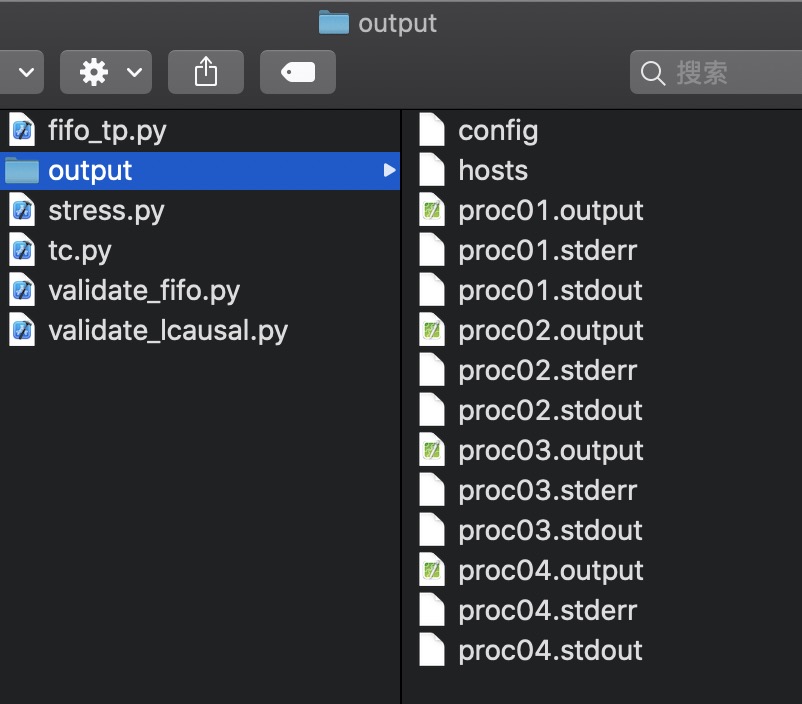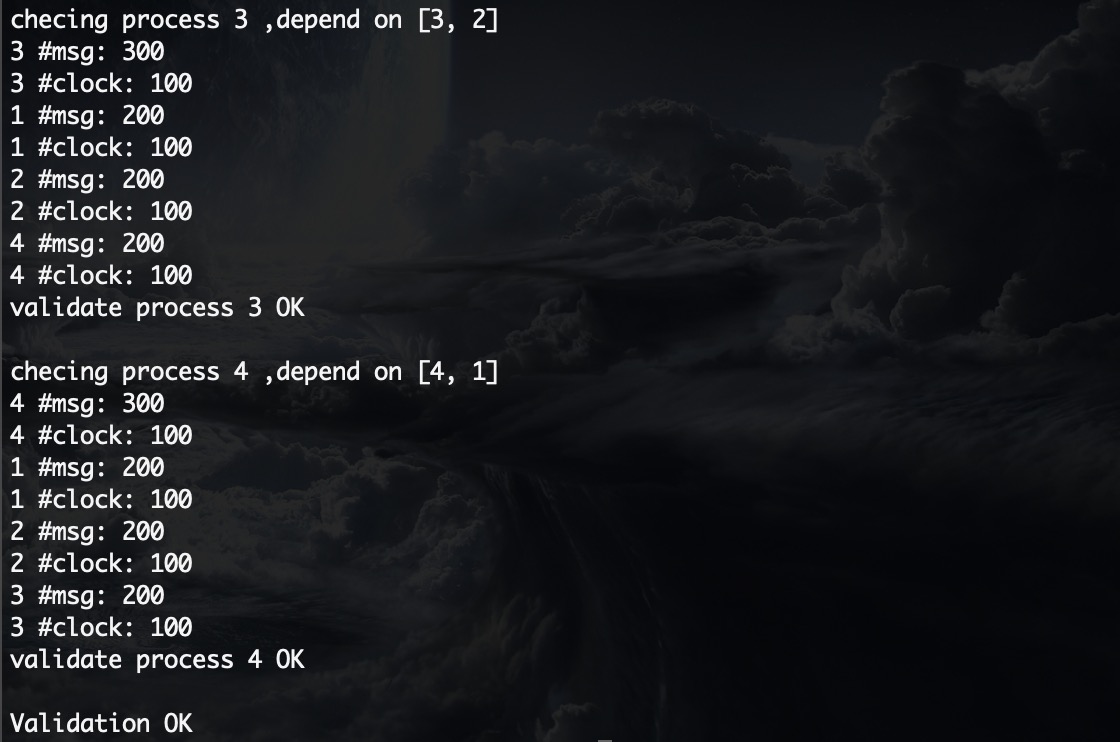1
2
3
4
5
6
7
8
9
10
11
12
13
14
15
16
17
18
19
20
21
22
23
24
25
26
27
28
29
30
31
32
33
34
35
36
37
38
39
40
41
42
43
44
45
46
47
48
49
50
51
52
53
54
55
56
57
58
59
60
61
62
63
64
65
66
67
68
69
70
71
72
73
74
75
76
77
78
79
80
81
82
83
84
85
86
87
88
89
90
91
92
93
94
95
96
97
98
99
100
101
102
103
104
105
106
107
108
109
110
111
112
113
114
115
116
117
118
119
120
121
122
123
124
125
126
127
128
129
130
131
132
133
134
135
136
137
138
139
140
141
142
143
144
| import argparse
config_path = './output/config'
output_path = './output/proc0'
def read_config():
f = open(config_path,"r")
data = f.readlines()
m = 0
dict = {}
count = 0
for line in data:
splited = line.split(" ")
if count == 0:
m = int(splited[0])
else:
sender = int(splited[0])
for i in range(len(splited)):
dict.setdefault(sender,[]).append(int(splited[i]))
count+=1
return dict
def getDependentList(id, dset):
cur_output_path = output_path+str(id)+'.output'
f = open(cur_output_path,"r")
data = f.readlines()
sequence = []
for line in data:
splited = line.split(" ")
if splited[0] == "d":
if int(splited[1]) in dset:
sequence.append(line)
print(str(id),'#msg:',len(sequence))
return sequence
def getDependentListOfCreator(id, dset):
cur_output_path = output_path+str(id)+'.output'
f = open(cur_output_path,"r")
data = f.readlines()
sequence = []
for line in data:
splited = line.split(" ")
if splited[0] == "b":
sequence.append(line)
else:
if int(splited[1]) in dset:
sequence.append(line)
print(str(id),'#msg:',len(sequence))
return sequence
def getVectorClock(sequence, id, proc_num):
clock = []
msg_clock_list = []
for i in range(proc_num+1):
clock.append(0)
for msg in sequence:
splited = msg.split(" ")
sender = int(splited[1])
clock[sender]+=1
if sender==id:
msg_clock_list.append(clock.copy())
return msg_clock_list
def getVectorClockOfCreator(sequence, id, proc_num):
clock = []
msg_clock_list = []
for i in range(proc_num+1):
clock.append(0)
for msg in sequence:
splited = msg.split(" ")
sender = int(splited[1])
if splited[0]=='d':
clock[sender]+=1
else:
msg_clock_list.append(clock.copy())
return msg_clock_list
def checkProcessId(id, dset):
print('checking process', str(id), ',depend on', dset)
ref_sequence = getDependentListOfCreator(id, dset)
ref_clock = getVectorClockOfCreator(ref_sequence, id, proc_num)
print(id,'#clock:',len(ref_clock))
for i in range(proc_num):
cur_id = i+1
if cur_id != id:
sequence = getDependentList(cur_id, dset)
clock = getVectorClock(sequence, id, proc_num)
print(cur_id,'#clock:',len(clock))
if len(clock)>len(ref_clock):
print('Number exceeds!')
return False
for i in range(len(clock)):
for j in range(proc_num+1):
if ref_clock[i][j] > clock[i][j]:
print('Clock not match!')
print('ref_clock:',ref_clock[i])
print('clock :',clock[i])
return False
return True
def checkProcess(proc_num):
depend = read_config()
print('dependency:',depend,'\n')
for i in range(proc_num):
id = i+1
if checkProcessId(id, depend[id])==False:
return False
print('validate process',str(id),'OK\n')
return True
if __name__ == "__main__":
parser = argparse.ArgumentParser()
parser.add_argument(
"--proc_num",
required=True,
dest="proc_num",
help="Total number of processes",
)
results = parser.parse_args()
proc_num = int(results.proc_num)
if checkProcess(proc_num):
print("Validation OK")
else:
print("Validation failed!")
|



